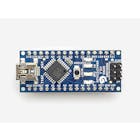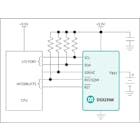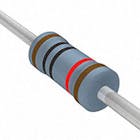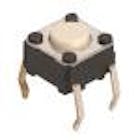/*
Analog Panel Meter - Clock ONLY Mode
Instructables Link: http://www.instructables.com/id/Analog-VU-meter-and-Clock-Arduino-Powered/
Credits:
bildr - DS1307 RTC code http://bildr.org/2011/03/ds1307-arduino/
_____________________
Wiring goes as follows:
- USB red wire (5v) to VCC
- USB black wire to GND
- Buttons - Left/Down to Digital 2 (follow arduino tutorial: http://arduino.cc/en/uploads/Tutorial/button.png )
- Right/Up to Digital 3
- DS1307 RTC - SDA to Analog 4
- SCL to Analog 5
- Left Analog Meter to Digital 5 (PWM)
- Right Analog Meter to Digital 6 (PWM)
_-Seconds Analog meter to Digital 9_(PWM)_____________________
Note:
Because all meters are slightly different, the PWM values
need to be adjusted based on your design. Feel free to use
my code, but you will have to change some values because
it is set to work specifically with my meters.
*/
#include "Wire.h"
#define DS1307_ADDRESS 0x68
byte zero = 0x00; //workaround for issue #527
int downButton = 2; // down push button to adjust time (pin 2)
int upButton = 3; // up push button to adjust time (pin 3)
int hours = 0;
int minutes = 0;
int seconds = 0;
int lastMinute = 0;
int lastSecond = 0;
int leftMeter = 5; // left meter (hours) is attached to pin 5
int rightMeter = 6; // right meter (min) is attached to pin 6
int secMeter=9; //seconds meter (sec)is attached to pin 9
void setup(){
Wire.begin();
Serial.begin(9600); //view time in serial monitor
pinMode(leftMeter, OUTPUT); // Initialize Outputs & Inputs
pinMode(rightMeter, OUTPUT);
pinMode(secMeter, OUTPUT);
digitalWrite(leftMeter, HIGH); // Test meters on startup
digitalWrite(rightMeter, HIGH);
digitalWrite(secMeter, HIGH);
digitalWrite(13, HIGH);
delay (1000);
digitalWrite(leftMeter, LOW);
digitalWrite(rightMeter, LOW);
digitalWrite(secMeter, LOW);
digitalWrite(13, LOW);
delay(1000);
}
void loop(){
printDate();
delay(75);
// Changing the time with buttons
if (digitalRead(downButton) == HIGH){
byte second = seconds; // Don't get confused: second is not the same as seconds
byte minute = minutes; // Don't get confused: minute is not the same as minutes
byte hour = hours; // Don't get confused: hour is not the same as hours
if (minutes > 0){
--minute;
}else{
minute = 59;
if (hours > 0){
-- hour;
}else{
hour = 23;
}}
Wire.beginTransmission(DS1307_ADDRESS);
Wire.write(zero); //stop Oscillator
Wire.write(decToBcd(second));
Wire.write(decToBcd(minute));
Wire.write(decToBcd(hour));
Wire.write(zero); //start
Wire.endTransmission();
}
if (digitalRead(upButton) == HIGH){
byte second = 0;
byte minute = minutes; // Don't get confused: minute is not the same as minutes
byte hour = hours; // Don't get confused: hour is not the same as hours
if (minutes < 59){
++minute;
}else{
minute = 0;
if (hours < 23){
++ hour;
}else{
hour = 0;
}}
Wire.beginTransmission(DS1307_ADDRESS);
Wire.write(zero); //stop Oscillator
Wire.write(decToBcd(second));
Wire.write(decToBcd(minute));
Wire.write(decToBcd(hour));
Wire.write(zero); //start
Wire.endTransmission();
}
}
byte decToBcd(byte val){
// Convert normal decimal numbers to binary coded decimal
return ( (val/10*16) + (val%10) );
}
byte bcdToDec(byte val) {
// Convert binary coded decimal to normal decimal numbers
return ( (val/16*10) + (val%16) );
}
void printDate(){
// Reset the register pointer
Wire.beginTransmission(DS1307_ADDRESS);
Wire.write(zero);
Wire.endTransmission();
Wire.requestFrom(DS1307_ADDRESS, 7);
seconds = bcdToDec(Wire.read());
minutes = bcdToDec(Wire.read());
hours = bcdToDec(Wire.read() & 0b111111); //24 hour time
//print the date
Serial.print(hours); // Un-comment to view time in serial monitor
Serial.print(":"); //
Serial.println(minutes); // Don't forget to un-comment 'Serial.begin' in 'void setup' above
// Specific meter levels for each hour
// You will likly have to adjust these values.
// Play around with the values until you get what you want.
if (lastMinute != minutes){
if (hours == 1 || hours == 13){
analogWrite(leftMeter, 0); // adjust left (hour) meter level
}
if (hours == 2 || hours == 14){
analogWrite(leftMeter, 29); // adjust left (hour) meter level
}
if (hours == 3 || hours == 15){
analogWrite(leftMeter, 52); // adjust left (hour) meter level
}
if (hours == 4 || hours == 16){
analogWrite(leftMeter, 75); // adjust left (hour) meter level
}
if (hours == 5 || hours == 17){
analogWrite(leftMeter, 98); // adjust left (hour) meter level
}
if (hours == 6 || hours == 18){
analogWrite(leftMeter, 130); // adjust left (hour) meter level
}
if (hours == 7 || hours == 19){
analogWrite(leftMeter, 152); // adjust left (hour) meter level
}
if (hours == 8 || hours == 20){
analogWrite(leftMeter, 172); // adjust left (hour) meter level
}
if (hours == 9 || hours == 21){
analogWrite(leftMeter, 192); // adjust left (hour) meter level
}
if (hours == 10 || hours == 22){
analogWrite(leftMeter, 213); // adjust left (hour) meter level
}
if (hours == 11 || hours == 23){
analogWrite(leftMeter, 234); // adjust left (hour) meter level
}
if (hours == 0 || hours == 12){
analogWrite(leftMeter, 255); // adjust left (hour) meter level
}
if (minutes * 4.75 < 255){ // increase PWM value by 4.75 each minute
analogWrite(rightMeter, minutes * 4.75); // I had to use 4.75 on my meter to get 30 minutes to point exactly straight up
}else{ // perfect would be 4.25 because 4.25 * 60 = 255
analogWrite(rightMeter, 255);
}
lastMinute = minutes;
if (seconds * 4.25 < 255){
analogWrite(secMeter, seconds *4.25);
}else{
analogWrite(secMeter, 255);
}
lastSecond = seconds;
}
}






